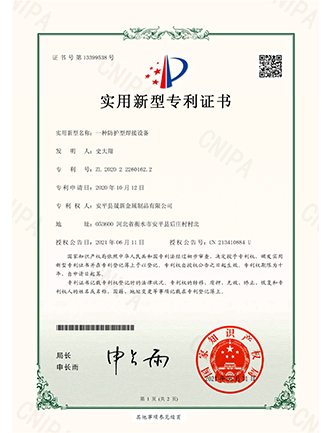
Nov . 11, 2024 00:32 Back to list
Custom Metal Fencing Solutions with CE Certification for Durable and Stylish Outdoor Spaces
CE Certification for Metal Fencing Custom Products
In today’s world, where safety and compliance are paramount, the significance of CE certification for metal fencing custom products cannot be overstated. CE marking is a declaration by the manufacturer that the product meets the essential requirements of the relevant European directives and regulations. This certification is integral for products that are used in construction, security, and architectural applications, ensuring that they are not only functional but also safe and of high quality.
Understanding CE Certification
The CE mark stands for Conformité Européenne, which translates to European Conformity. It signifies that a product has been assessed and meets EU safety, health, and environmental protection requirements. For metal fencing products, this includes an evaluation of the materials used, the manufacturing processes, and the overall design to ensure that they meet specific standards of durability and safety.
Obtaining CE certification can seem complex, especially for custom metal fencing products. Manufacturers must ensure that their products comply with various directives such as the Construction Products Regulation (CPR), which sets the performance criteria for construction materials, including fencing.
The Importance of Customization in Metal Fencing
Metal fencing is not a one-size-fits-all solution. Different applications require specific designs, heights, gauges, and finishes to meet aesthetic preferences and functional needs. Customization allows clients to create a fencing system tailored to their property and security requirements. However, with this customization comes the need for rigorous adherence to standards.
Each custom product must be designed and manufactured in a way that still complies with CE certification standards. This means that manufacturers must understand how various amendments and specifications affect their custom designs. For instance, a decorative iron fence may require different testing than a heavy-duty security fence.
The Process of CE Certification
The CE certification process typically involves several key steps. Initially, manufacturers must identify the relevant EU directives that apply to their products. This involves a detailed analysis of the design and materials used in the fencing. They must also conduct tests to ensure the products meet stringent performance specifications.
ce certification metal fencing custom products

Documentation is a critical part of the CE certification process. Manufacturers must create Technical Files that detail the design, production processes, and results of testing. This information not only confirms compliance but also serves as proof should any questions about the product arise in the future.
Once testing and documentation are complete, the manufacturer must self-declare conformity or get an external assessment from a notified body, depending on the directives applicable to the product. Upon successful completion, the product can bear the CE mark, signaling that it complies with EU standards.
Benefits of CE Certification for Custom Metal Fencing
1. Market Access CE certification is mandatory for selling products in the European market. Without it, manufacturers cannot legally distribute their metal fencing products across member countries.
2. Consumer Trust The CE mark assures consumers that the product has undergone rigorous testing and meets quality standards. This builds confidence and enhances brand reputation.
3. Legal Protection Compliance with CE marking can protect manufacturers from potential liability issues. Should a product malfunction or cause harm, having proper certification can serve as a defense in legal disputes.
4. Focus on Quality The process of achieving CE certification encourages manufacturers to prioritize quality in their product design and manufacturing processes. This often leads to better overall performance and durability of metal fencing products.
Conclusion
In summary, CE certification is a crucial aspect of the metal fencing industry, particularly for custom products. It not only ensures compliance with EU regulations but also enhances product quality, marketability, and consumer trust. For manufacturers looking to thrive in this competitive market, understanding and implementing CE certification processes is essential. As consumer demands evolve and regulatory standards become more stringent, staying ahead in compliance will be a defining factor in the success of metal fencing products. Investing in CE certification is not merely a legal obligation but a strategic advantage in today’s marketplace.
-
Premium ODM 7' Security Fence - High-Security & Durable
NewsAug.01,2025
-
Powder Coated Double Wire Mesh Fence for Germany Market - Anping County Shengxin Metal Products Co., Ltd.
NewsJul.31,2025
-
Powder Coated Double Wire Mesh Fence - Anping County Shengxin Metal Products Co., Ltd.|Durable, Corrosion-Resistant, Customizable
NewsJul.31,2025
-
Powder Coated Double Wire Mesh Fence - Anping County Shengxin Metal Products Co., Ltd | Durable Corrosion Resistant Fencing
NewsJul.31,2025
-
Powder Coated Double Wire Mesh Fence - Anping County Shengxin Metal Products Co., Ltd | Durability, Corrosion Resistance
NewsJul.31,2025
-
Privacy Chain Link Fence Slats | Durable Solutions
NewsJul.31,2025
